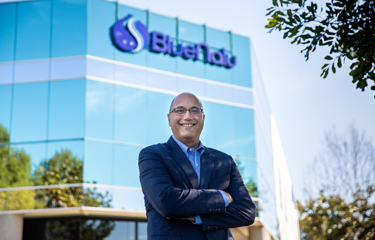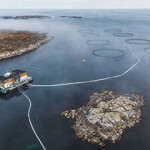BlueNalu raises additional USD 33.5 million as it continues path to regulatory acceptance

San Diego, California, U.S.A.-based BlueNalu has successfully raised an additional USD 33.5 million (EUR 31.5 million) from new and existing investors in a recent Series B financing round.
The new financing, venture capital firm Argonomics said in a release, will help BlueNalu continue scaling its cell-cultured seafood. Argonomics has invested USD 8 million (EUR 7.5 million) in BlueNalu across multiple funding rounds.
The additional funding comes within a week of the company announcing is signed new memorandums of understanding with Mitsubishi, Thai Union, and Pulmuone.
BlueNalu President and CEO Lou Cooperhouse told SeafoodSource the new MoUs are an extension and an enhancement of the previous partnership agreements the company signed with the three Asia-based companies.
The enhanced partnerships, he said, will help BlueNalu extend its efforts in the Asia-Pacific (APAC) region.
“In the next week or so, we'll be releasing some market insights from comprehensive consumer research we conducted in the United States. As part of our new MoU’s, we intend to replicate that market research with the help of our partners in the APAC region and conduct additional focus groups with food service operators and consumers,” Cooperhouse said.
Partnering with companies in different areas of the world, he said, is an important part of ensuring BlueNalu can target markets in those areas.
“Whereas BlueNalu seeks to be a global leader in cell-cultured seafood, we also realize that seafood preferences are quite local, based on geographic access to fish, cultural influences, and other factors,” Cooperhouse said. “With market research data we will gain over the next few years, and knowledge we will gain regarding regulatory pathways in Japan, Korea, Thailand, and other nations in the APAC region, BlueNalu will be able to develop the unique market entry and distribution strategies that will be required to successfully bring our cell-cultured seafood to the market in each nation.”
Cooperhouse said the partnerships are also key to the company’s efforts in making sure it has the regulatory approvals and compliance needed to sell into the markets. When BlueNalu first got off the ground, no regulatory guidelines or rules existed for cell-cultured seafood, meat, or poultry products anywhere in the world.
“And today, the only defined regulatory process for these novel products exists in Singapore and the U.S. - both of which took years of communication and learning from regulatory agencies and cell-cultured industry,” Cooperhouse said.
That lack of regulatory framework for the product, Cooperhouse said, is part of why the company is working proactively with companies that have an understanding of the regulatory processes in their respective countries.
“For example, in Japan, we’ve been a part of regulatory discussions for several years now. We joined the Center for Rulemaking Strategies (CRS) in 2020, a think tank out of Tama University in Tokyo composed of leadership from industry, government and academia, and presented to this group twice in 2021. The CRS group has since evolved to the Japanese Association for Cellular Agriculture (JACA), which has enabled BlueNalu to engage with the Japanese Ministry of Health Labor and Welfare (MHLW) regarding cell-cultured meat and seafood safety considerations,” Cooperhouse said. “We have recently initiated similar discussions with regulatory agencies and stakeholders in South Korea and Thailand, as it's our intention to introduce BlueNalu’s cell-cultured seafood products in the APAC region and around the world over the coming years.”
As BlueNalu continues to work with governments, Cooperhouse said it has been making steady progress on the facilities side of its operations. The company currently has two facilities it operates from in San Diego, California, and it has also completed the design, installation, and infrastructure of a “hygienic and GMP operation” enabling the company to prepare products for regulatory review in the U.S., Singapore, and other countries.
“We have also accomplished the foundational technologies needed to successfully scale and deliver on the value proposition of healthy, non-GMO, premium seafood products that we believe will result in a superior product offering to our customers and enable us to be quite profitable as well,” Cooperhouse said. “We will continue to incrementally scale up our process with the help of our partners to ensure we are meeting the product quality attributes at every level for the high bar of excellence that is expected.”
Photo courtesy of BlueNalu






Share